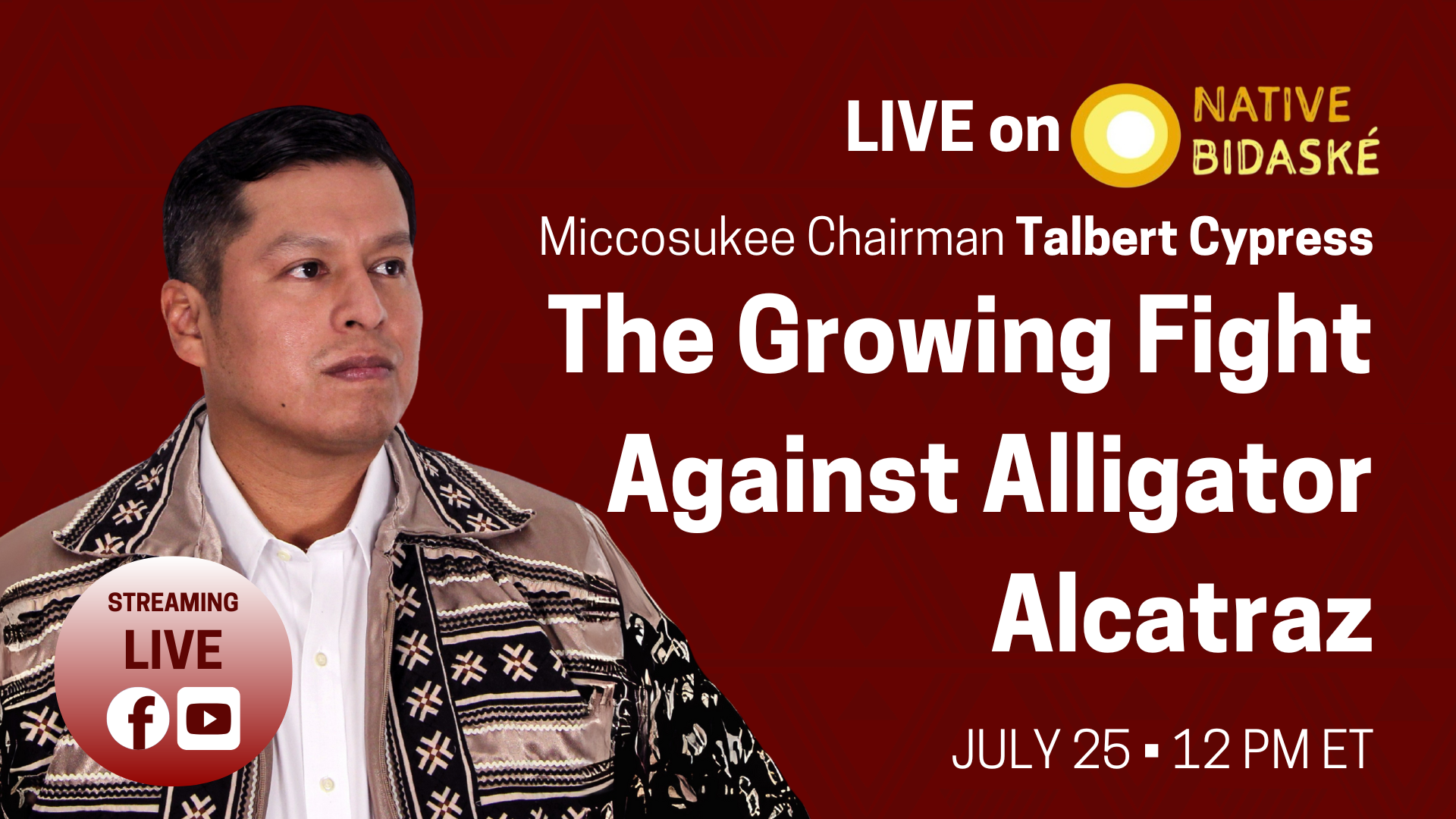
- Details
- By Native StoryLab
A massive detention center materialized overnight on a remote airstrip in the Florida Everglades — just 900 feet from where the Miccosukee people still pray, speak their language, and hold ceremonies. President Trump calls it Alligator Alcatraz. The Miccosukee call it a violation.
This week on Native Bidaské, Miccosukee Chairman Talbert Cypress reveals what’s happening and why his tribe is taking the fight to court.
On sacred land their ancestors died to protect, the U.S. government is detaining migrants behind barbed wire fences, powered by diesel generators, surrounded by endangered wildlife. The Miccosukee weren’t asked. They weren’t consulted. Now they’re suing.
Support is building nationwide among tribes, conservationists, water advocates and Florida residents. Because this isn't just about one tribe or one detention center — it's about whether the government can bypass environmental laws and ignore consultation requirements.
🎥 Watch Native Bidaské with Chairman Talbert Cypress to learn the full story.
TUNE IN:
Date: Friday, July 25, 2025
Time: 12:00 p.m. ET / 11:00 a.m. CT / 10:00 a.m. MT / 9:00 a.m. PT
Streaming on: Facebook, YouTube, and the Native News Online website
Help us defend tribal sovereignty.
At Native News Online, our mission is rooted in telling the stories that strengthen sovereignty and uplift Indigenous voices — not just at year’s end, but every single day.
Because of your generosity last year, we were able to keep our reporters on the ground in tribal communities, at national gatherings and in the halls of Congress — covering the issues that matter most to Indian Country: sovereignty, culture, education, health and economic opportunity.
That support sustained us through a tough year in 2025. Now, as we look to the year ahead, we need your help right now to ensure warrior journalism remains strong — reporting that defends tribal sovereignty, amplifies Native truth, and holds power accountable.
 The stakes couldn't be higher. Your support keeps Native voices heard, Native stories told and Native sovereignty defended.
The stakes couldn't be higher. Your support keeps Native voices heard, Native stories told and Native sovereignty defended.
Stand with Warrior Journalism today.
Levi Rickert (Potawatomi), Editor & Publisher
